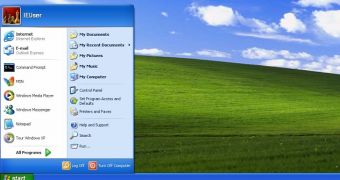Microsoft rolled out a special chart to demonstrate that Windows 8.1 is the right alternative for Windows XP, especially because support for this OS version is coming to an end in April, but the company now goes one step further in its campaign to move users to a newer platform with a new statement.
This time, Peter K. Han, Microsoft vice president of U.S. OEM, reveals the four things that make Windows 8.1 the right choice for businesses still using Windows XP, of course without saying a thing about the downsides of the migration to this new OS version.
Han explained that the difference between Windows 8.1 and Windows XP comes down to four different things, namely mobility, security, remote access, and efficiency.
Basically, Windows 8.1 is providing enhanced mobility thanks to the fact that it’s working on touch-capable devices as well, which means that you can install the operating system on tablets and allow employees to work “wherever, whenever, and however,” as Han explained.
As far as security is concerned, there’s no doubt that Windows 8.1 is a much more advanced product, as Windows XP was released in 2001 and it’s pretty clear that it lacks the necessary features to cope with today’s security threats.
“Hackers and cyber criminals have become more advanced since Windows XP came out, and new technologies and hardware focused around protecting your business have been developed. Windows 8.1 Pro is specially designed to take advantage of these new technologies and hardware,” Microsoft pointed out.
Of course, remote access is fairly important for businesses, and Windows 8.1 comes with several improvements in this regard, while efficiency can be improved thanks to faster boot time, better multi-tasking capabilities, cloud integration, and enhanced multi-monitor support.
The problem with Windows XP is that it remains a very popular operating system nowadays, with statistics pointing to a 29 percent market share on the desktop. Microsoft hopes to cut Windows XP’s share to 13 percent by April, but it’s pretty clear that this is very unlikely to happen, especially because many users have already expressed their intention to stick to this OS version for at least one more year.
At the same time, security companies across the world have also confirmed that their products will continue to work on Windows XP after retirement, which means that virus definitions will still be delivered to machines sticking to this OS version beyond April.

 14 DAY TRIAL //
14 DAY TRIAL //